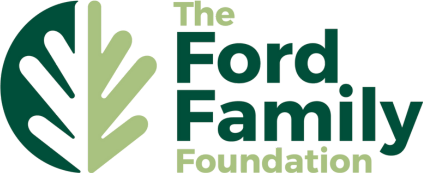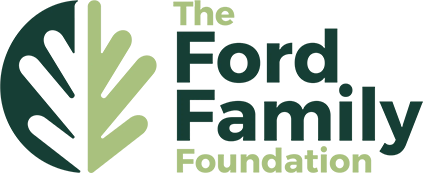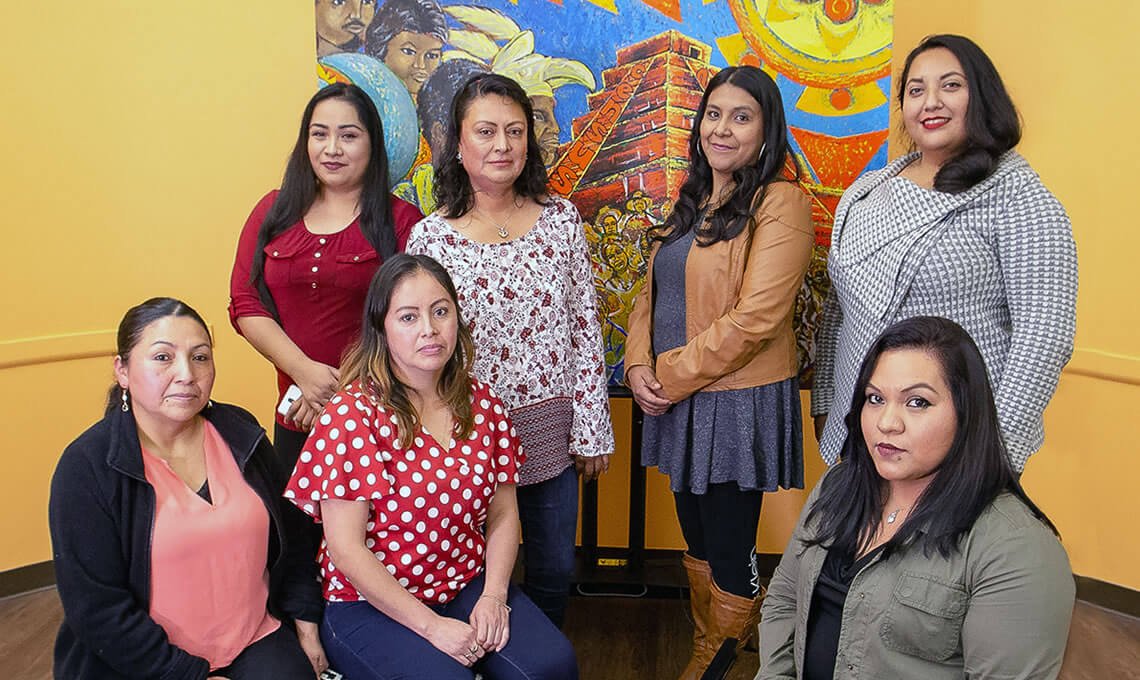Bilingual public education, traffic safety and a vision for more inclusive, united communities motivated residents in Molalla to get involved. The path to creating the change they wanted? Community building and connection.
Through the Buen Vecino (Good Neighbor) training program, families living in a farmworker housing complex worked together, discovered their shared interests and built skills to approach city and state officials.
From communities like Molalla to Boardman, Sisters and Irrigon, neighbors are building power and cultivating their leadership. Mothers, young people, renters and agricultural farmworkers are mobilizing around common agendas, gaining courage and finding their voice.
The program, first developed by Roque Barros, Ford Institute for Community Building director, has been embraced and further developed by the rural communities The Ford Family Foundation serves.
“We do this work in communities to elevate the voice of those who most likely would not be heard,” says Laura Isiordia, a field coordinator for the Foundation, who is bilingual in Spanish and English.
Isiordia meets with community members to decide what local issues they want to address and the skills they will need. She works with the group to facilitate training sessions on a flexible schedule.
Building Skills
Practicing skills like public speaking and outreach to neighbors prepares participants to collaborate with other organizations and government agencies.
Buen Vecino, implemented in Latino and immigrant communities across the state, refocuses typical models of community engagement. Rather than leadership development in the abstract, community members’ passions and priorities determine the program content. Resident-driven agendas ensure the most relevant community needs are met; participants build confidence as they grow skills, gain courage and celebrate wins.
In Woodburn, residents Martha Pérez and Josefina Cruz exemplify this new wave of leadership. As longtime residents of the Farmworker Housing Development Corporation’s (FHDC) Nuevo Amanecer apartment complex, they and their neighbors were searching for new learning opportunities, something that could help their families. When the Buen Vecino program was presented by Anabel Hernandez-Mejía, FHDC resident leadership coordinator, they saw it as an opportunity for personal growth.
“It’s a change in how we think and see things,” Pérez explains. “It’s being conscious of what we do and how we can improve ourselves and our community.”
For example, the group of Buen Vecino community leaders transformed Nuevo Amanecer’s National Night Out event, an annual community building opportunity with local police. In previous years, most community members were not aware of the event. In 2019, thanks to the Buen Vecino team connecting with their neighbors, “se hizo pachanga” (“there was a huge party”). Two hundred neighbors attended, bringing with them their families, the sound system, fun and food to share.
The success of National Night Out served as an early indicator that the community building team was on the right track. Asking their neighbors to join in the planning for community projects ensures that voices are valued and hands are in the action as contributing community members.
The group is now using their power to participate in broader movements such as campaigns for driver’s licenses.
“It’s not just a certain group of people who can make decisions,” Perez says, “The power is in all of us.”
Residents like Perez are now using their power to participate in broader movements — from being a voice for farmworker rights to participating in campaigns for driver’s licenses and advocating for fair housing practices.
Josefina Cruz emphasizes that these conversations are essential for the success of all of Oregon’s residents: “I’d like to invite people who perhaps don’t have the bravery yet or are embarrassed: Let’s educate ourselves and take advantage of opportunities to learn more. That will help us grow and give more to ourselves and other people.”


